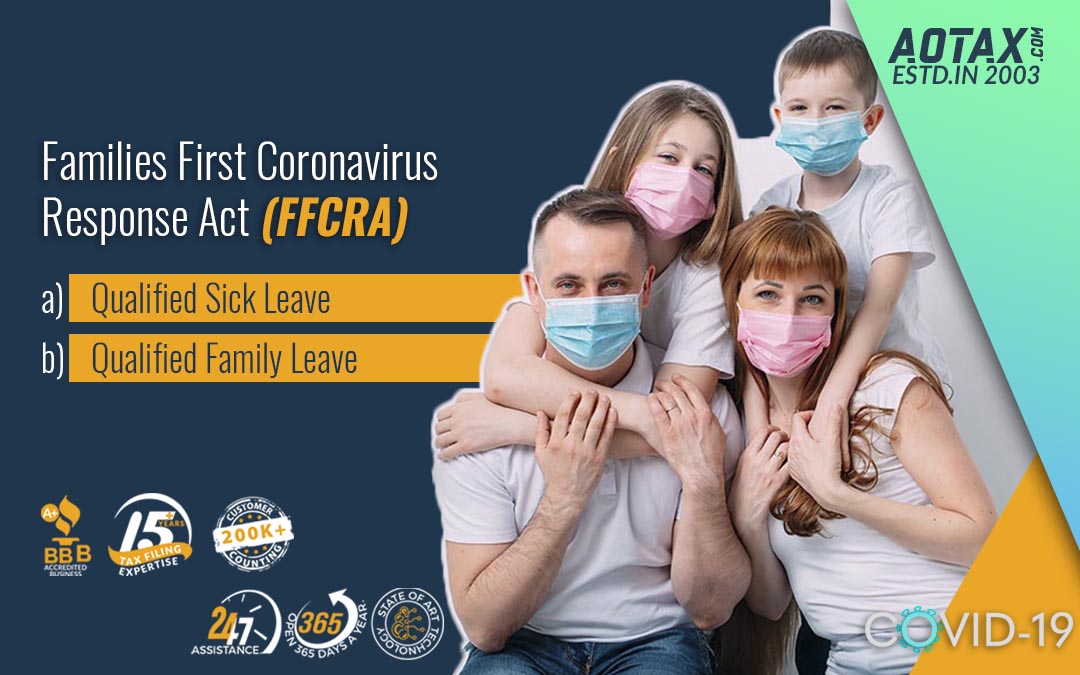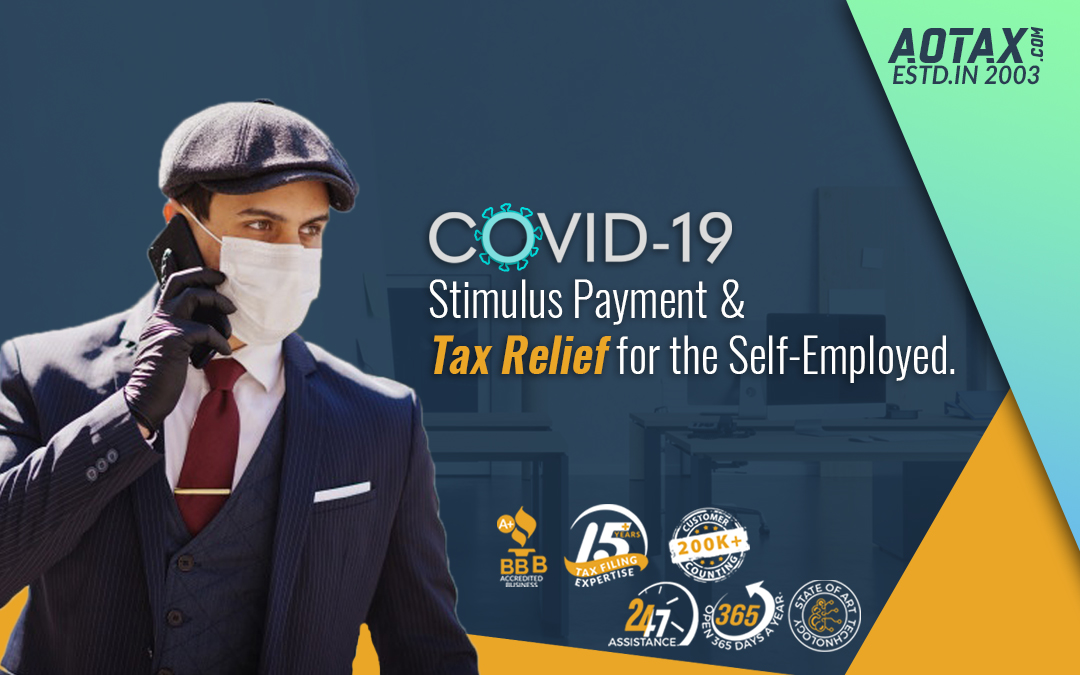COVID-19 Stimulus Payment and Tax Relief for the Self-Employed
Self-employed individuals are those who earn a livelihood by working for themselves. They do not work as an employee for someone else and not as an owner/shareholder of any corporation. Self-employed persons can work for themselves in different trades and occupations such as photography, music, hairstyling, tutors, childcare workers, etc. Professionals like Gig workers, independent contractors, freelancers, and owners of small businesses can be said to be self-employed.
A very important part of the American workforce comprises of self-employed individuals. With the outbreak of the COVID-19, there are a large number of self-employed individuals who are facing economic disruptions. Many of them have either lost their income or are struggling hard to make income.
Let us talk about the various changes made in the tax laws by the Federal Government for reducing the stress of these self-employed individuals during the COVID-19.

a.Families First Coronavirus Response Act (FFCRA)
The Families First Coronavirus Response Act was signed into law on 18th March 2020. This Act included certain refundable tax credits which would be beneficial for the self-employed individuals.
1.Qualified Sick Leave
In case a self-employed individual is taking a sick leave from his job due to his health or for taking care of a family member showing up symptoms of being affected by COVID-19. In case of a self-employed individual is willing to claim sick leave credit, the below-mentioned guidelines would be helpful.
- If the individual is himself being quarantined due to exhibiting symptoms of COVID-19, he can claim up to ten days of sick pay at his average rate of income whose maximum value is $511 per day.
- If the self-employed individual has to take a leave for taking care of a family member exhibiting coronavirus symptoms, he can claim up to 10 days of sick pay at two-thirds of his average rate of income whose maximum value can be $200 per day.
2.Qualified Family Leave
A self-employed individual can claim a refundable tax credit associated with family leave. This family leave can be because of not being able to send your kid to school or daycare as they are closed due to the outbreak of COVID-19. In this case, the self-employed individual would be able to claim up to 50 days of income at the rate of two-thirds of his earning. The maximum value of the average rate of earning in a day can be $200.
These refundable credits offered by FFCRA will be applicable when a self-employed individual is filing his tax returns for 2020 in 2021. The IRS has suggested considering these credits while planning for federal estimated tax payments. The self-employed tax would get reduced by the qualifying credit and hence the funds can be used up now at the times of emergency. Self-employed individuals can maintain records related to virus testing, medical care or school closure for making the claims.
b.Extension in tax deadlines
To alleviate the financial disruption caused by COVID-19, the Federal Government has extended the deadlines for filing tax returns and even tax payments to 15th July 2020.
For the self-employed taxpayers, the deadline for payment of the first quarter estimated tax has been extended to 15th July 2020. However, the deadline for the payment of second, third and fourth remains unchanged i.e. 15th June 2020, 15th October 2020 and 15th January 2021 respectively.
Even though there has been an extension in the deadline for filing tax returns and tax payment, the IRS advises people to file the tax refund soon as the refund can be obtained on time and be utilized in these times of emergency.
c.Stimulus payment under the CARES Act
The Federal Government would be sending the taxpayers stimulus payments based on their AGI and tax filing status of the year 2019. The Government would consider the tax returns filed for the year 2019 to determine how much a self-employed individual should obtain as Stimulus payment. In case, a self-employed individual has not filed for the year 2019 his tax returns for 2018 would be taken into consideration.
- If a self-employed individual is filing his tax returns as a single individual and his AGI is below $75,000 then he would receive a Stimulus payment of $1200.
- In case of filing tax returns jointly as a married couple with AGI less than $150,000, the Stimulus payment received would be $2400.
- If there is a dependent below the age of 17 years and has been claimed on tax returns, then an additional Stimulus payment of $500 would be obtained.
Hence, with the impacts of COVID-19 affecting the financial lives of the Americans especially the self-employed individuals, it is quite sure that the relief measures initiated by the US Government would bring the stress level of the Americans under control.
References
https://www.taxslayer.com/blog/covid-19-stimulus-payment-tax-credits-self-employed-gig-workers/
https://www.uschamber.com/co/start/strategy/families-first-coronavirus-response-act-guide
https://www.investopedia.com/terms/s/self-employed-person.asp


Recent Comments